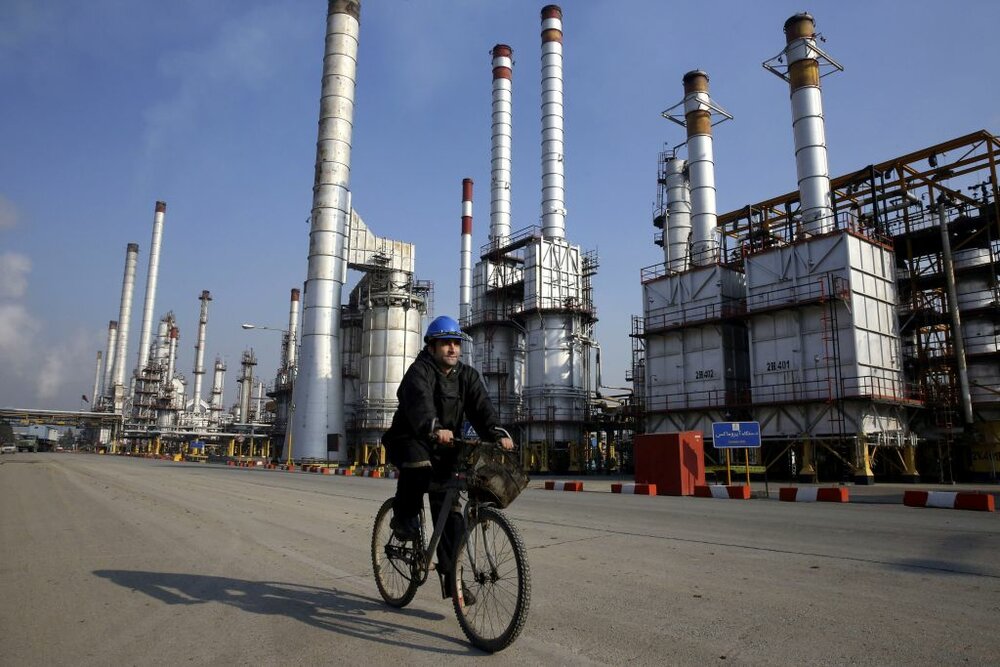“Redundant” sanctions vs. “resilient” economy

As the United States sanctioned Iran’s Persian Gulf Petrochemical Industries Company (PGPIC) on Friday, many analysts and officials believe them to have no significant impact on the country’s economy in a broad sense.
On Friday, Washington imposed new sanctions on Iran’s largest petrochemical holding group, aiming to dry up yet another source of Iran’s revenues in order to boost pressure on the country’s economy.
The U.S. Treasury said in a statement that it had sanctioned the PGPIC holding group’s network of 39 subsidiary petrochemical companies and foreign-based sales agents.
However, experts and analysts believe this new sanctions to be more symbolic than practical.
According to a Reuters report published on Friday, a former U.S. Treasury official, who asked not to be named, said the new sanctions would have little effect.
Suzanne Maloney from the Brookings Institution think tank described the latest U.S. sanctions as “a natural next step in what I think is a deliberately redundant array of restrictions.”
Rising pressure and Iran’s resilience
In May 2018, Donald Trump officially withdrew the United States from the 2015 nuclear agreement, officially called the Joint Comprehensive Plan of Action or JCPOA.
Later in April 2019, the Trump administration announced that it would no longer extend the waivers for Iranian oil buyers, namely China, India, Japan, South Korea, Taiwan, Turkey, Italy and Greece which allowed them to ship in limited amounts of oil from the country.
As a next step to “compound the pressure” on Iran, Trump has targeted Iran’s petrochemical industry to cut off yet another source of revenue for the country.
The managing director of Iran’s National Petrochemical Company (NPC) said in early May that petrochemical industry is not like oil industry and it is practically unsanctionable.
“For oil the ways of selling and the costumers are specific and limited but that is not the case with petrochemicals. There are hundreds of holdings which are eager for buying our diverse petrochemical products”, Behzad Mohammadi noted.
It is also worth mentioning that Iran had predicted this new sanctions and NPC was already exploring new ways of keeping its petrochemical exports in flow.
“We are holding meetings with our customers to explore various aspects of possible impacts of the U.S. sanctions on our trade", Mohammadi had told the Tehran Times in a press conference on the sidelines of the 24th Iran International, Oil, Gas, Refining and Petrochemical Exhibition (Iran Oil Show 2019).
In late April, General Secretary of Iran's Association of Petrochemical Industry Corporation (APIC) Ahmad Mahdavi Abhari said that U.S. sanctions were not going to have any significant impact on Iran’s petrochemical industry.
U.S. propaganda, Iranian petchem investments and exports
For long, Iran’s petrochemical industry has been one of the most attractive areas for foreign investors and despite all U.S. efforts, foreign companies are already trying to get a share in the country’s petrochemical projects.
In late May, NPC’s Director for Investment Hossein Alimorad said “Despite all the current negative propaganda since the withdrawal of the United States from the nuclear deal, foreign companies, especially Asians, are still willing to cooperate with us considering advantages of the Iranian petrochemical industry.”
The official noted that currently a consortium comprising foreign partners is in talks with NPC for investment in some significant projects.
“The government is also taking all the necessary measures to facilitate the process of such investments and the companies which are going to invest in Iran surely have their own mechanisms for countering U.S. sanctions,” he said.
Iran is also offering a variety of petrochemical products at the country’s Energy Stock Market (IRENEX), as a new strategy to counter U.S. efforts to boost the pressure on the country’s economy.
Tehran has also reputedly stated that it is fully prepared to sell its oil in a “gray market”, and that could be also applicable to the petrochemical industry as well.
Petrochemical industry is one of the most important pillars of Iran’s economy and one of the main suppliers of foreign currency especially euro for the country.
Iran is currently producing near 63 million tons of petrochemical products annually and with several new projects underway, the number is expected to jump over 65 million tons, further cementing the Islamic Republic’s stance as a major petrochemical supplier to the world markets.
EF/MA
